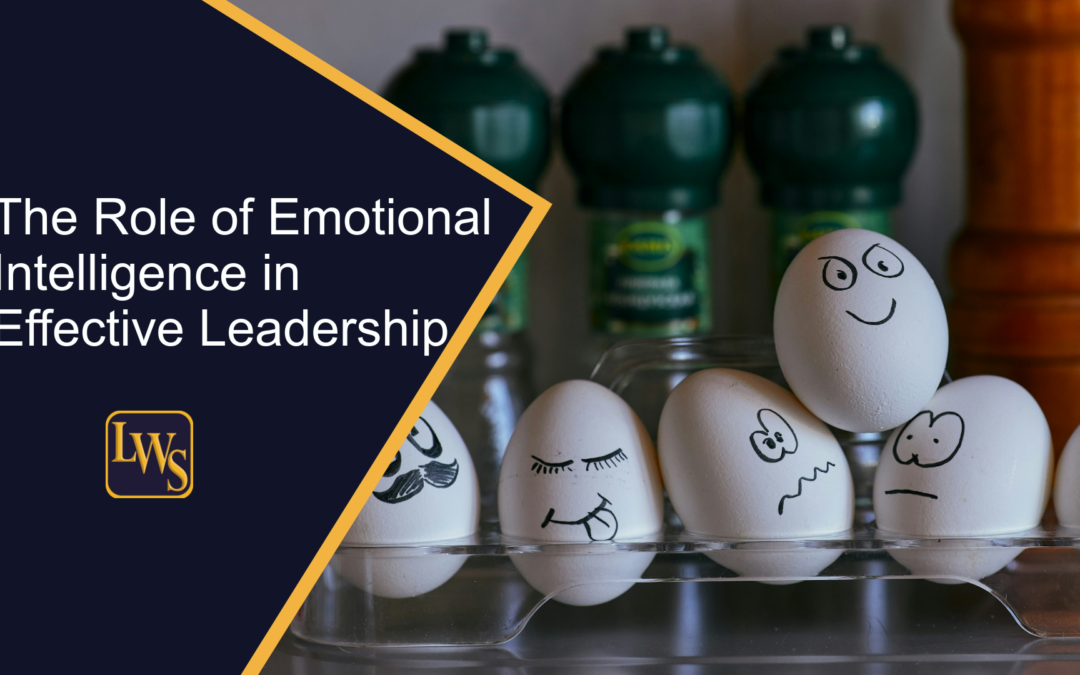At a Glance
- Emotional intelligence in leadership plays a crucial role.
- The core competencies of emotionally intelligent leaders.
- Developing emotional intelligence for effective leadership.
- Conflict resolution and collaboration through emotional intelligence.
- Cultivating a culture of emotionally intelligent leadership.
Emotional intelligence is a crucial aspect of effective leadership. In today’s demanding work environment, leaders who possess high emotional intelligence are better equipped to navigate challenges, build strong relationships, and inspire their teams. In this article, we will explore the significance of emotional intelligence in leadership and how it impacts various aspects of organizational success.
Understanding Emotional Intelligence
Emotional intelligence refers to the ability to recognize, understand, and manage our own emotions, as well as the emotions of others. It involves being aware of our own feelings, empathizing with others, and using emotions effectively to guide our thoughts and actions. Leaders with high emotional intelligence have a deeper understanding of themselves and those they lead, enabling them to create positive and productive work environments.
The Impact on Leadership Skills
Effective leadership requires a diverse set of skills, ranging from strategic thinking to decision-making. Emotional intelligence complements these skills by providing leaders with a strong foundation for building relationships and fostering collaboration. By understanding their emotions and those of their team members, emotionally intelligent leaders can adapt their communication style and motivate their teams more effectively.
Furthermore, emotional intelligence plays a crucial role in conflict resolution. Leaders who possess high emotional intelligence can navigate difficult conversations with empathy and understanding, facilitating resolutions that benefit all parties involved. This ability to manage conflicts constructively fosters a more harmonious work environment and enhances team productivity.
Leadership Development and Emotional Intelligence
Leadership development programs often prioritize technical skills and industry knowledge. However, emotional intelligence is equally important for effective leadership. Organizations can invest in developing leaders’ emotional intelligence through training programs and coaching sessions. By honing their emotional intelligence, leaders can improve their self-awareness, enhance their communication skills, and cultivate stronger relationships with their teams.
Additionally, organizations can incorporate emotional intelligence assessments into leadership development initiatives. These assessments can provide valuable insights into leaders’ strengths and areas for improvement, allowing them to tailor their development plans accordingly. By integrating emotional intelligence into leadership development efforts, organizations can foster a culture of emotionally intelligent leadership.
The Core Competencies of Emotionally Intelligent Leaders
Emotionally intelligent leaders exhibit certain core competencies that set them apart. Let’s explore some of these competencies and how they contribute to effective leadership:
- Self-Awareness: Emotionally intelligent leaders have a deep understanding of their own emotions, strengths, and weaknesses. This self-awareness enables them to make sound decisions, manage stress effectively, and inspire confidence in their team members.
- Empathy: Empathetic leaders can understand and relate to the emotions and experiences of their team members. By demonstrating empathy, leaders can build trust, strengthen relationships, and create a supportive work environment.
- Effective Communication: Emotionally intelligent leaders excel in their communication skills. They are adept at active listening, conveying their thoughts clearly, and adapting their communication style to different individuals and situations.
- Conflict Management: Leaders with high emotional intelligence can navigate conflicts with tact and diplomacy. They seek win-win solutions and encourage open dialogue, fostering a culture of collaboration and problem-solving within their teams.
- Influencing Skills: Emotionally intelligent leaders have the ability to inspire and influence others positively. By understanding the motivations and needs of their team members, they can effectively communicate the vision and goals of the organization, driving engagement and commitment.
Conclusion
Effective leadership goes beyond technical skills – it requires a deep understanding of oneself and others. Emotional intelligence is an essential component of effective leadership. Leaders who possess high emotional intelligence are better equipped to build strong relationships, navigate challenges, and inspire their teams. By prioritizing the development of emotional intelligence in leadership programs, organizations can cultivate a culture of emotionally intelligent leadership that drives success and well-being for all stakeholders involved. By developing emotional intelligence in themselves as well as others, leaders can create a positive and inclusive work environment that fosters growth, collaboration, and long-term success.
How well do you adapt your communication style to different individuals and situations to foster better understanding and engagement?
Are you able to effectively manage conflicts and challenges by leveraging empathy and understanding?
What steps are you taking to continuously develop and strengthen your own emotional intelligence?
Start developing your leadership skills today with The Effective Leader or sign up today for the Effective Leadership email newsletter.
Contact me today for a complementary Strategy Session: Leadership Strategy Session
Or book me to speak at your next Event, Team Meeting, or Off-Site Retreat: Speaker Request

